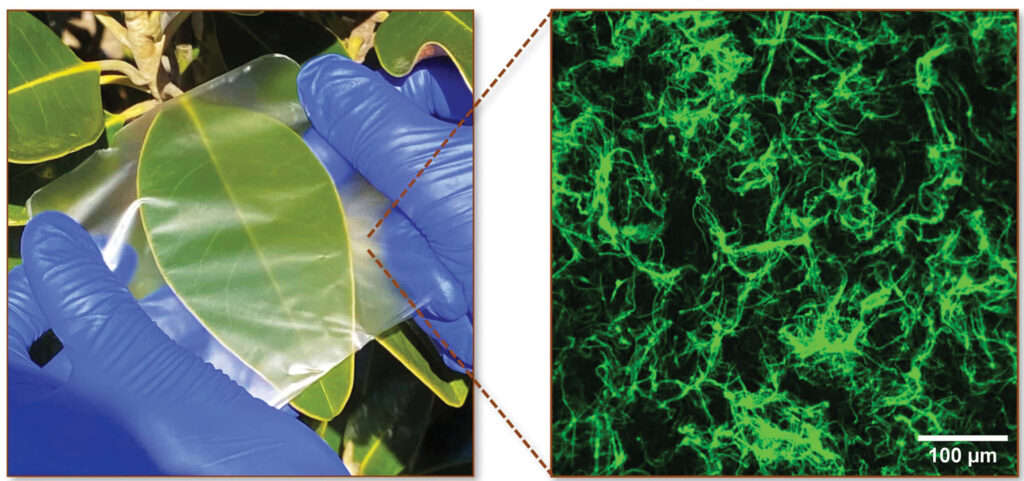
Materials with enhanced structure derived from crustaceans and seaweed could be part of a next-generation answer to the challenge of replacing petroleum-based plastic films, according to new research from North Carolina State University (NC State). Researchers combined chitosan from shrimp shells with seaweed-derived agarose into a new biopolymer composite film. Agarose is used to make gels.
Orlin Velev, professor of chemical and biomolecular engineering at NC State, notes that the new approach his team took was not simply to mix the components together but to reinforce the agarose film with the fibril material made from chitosan.
“It is challenging to modify natural polymers chemically, but we can alter their morphology and use them as composites,” says Yosra Kotb, an NC State Ph.D. graduate and first author of the paper.
The films are also biodegradable, have antibacterial properties, repel water and are transparent. The findings could eventually lead to sustainable packaging films for food and consumer goods.
NC State has filed a patent application on the new biopolymer composite films and the process for creating them. The research appeared in Cell Reports Physical Science in December 2023.
 TEXTILES.ORG
TEXTILES.ORG


